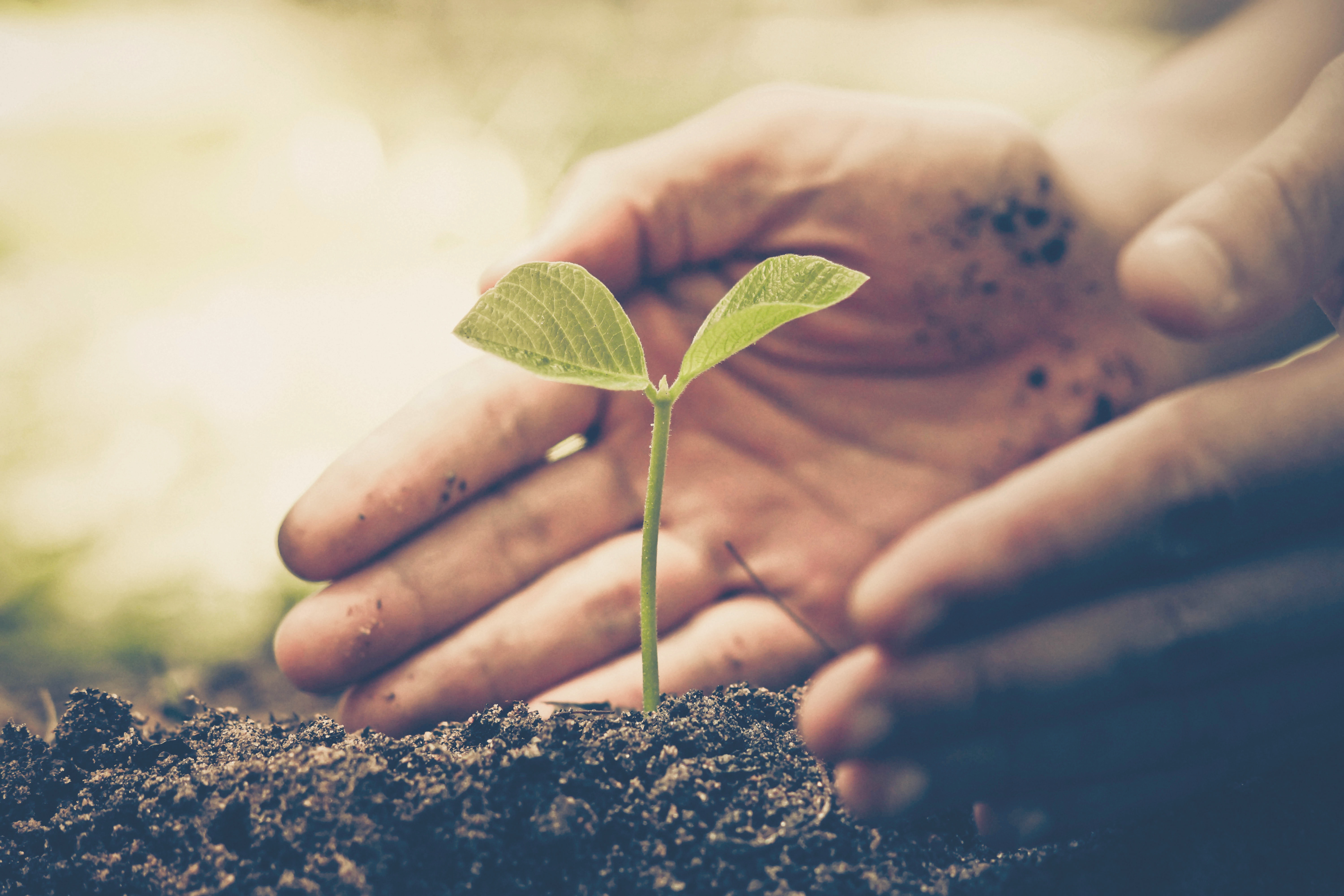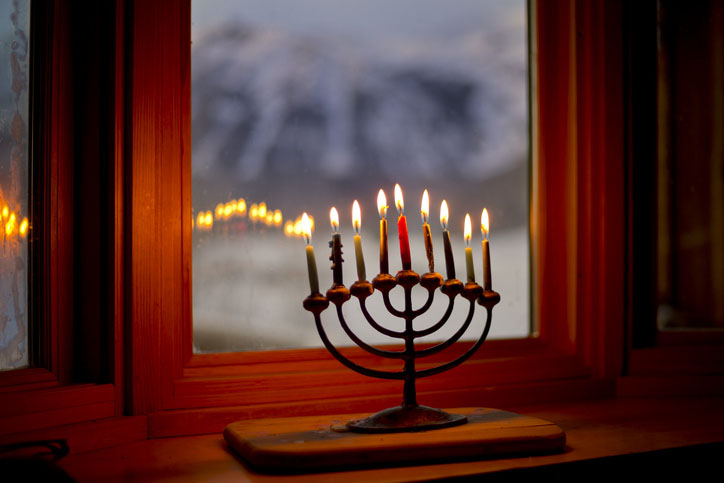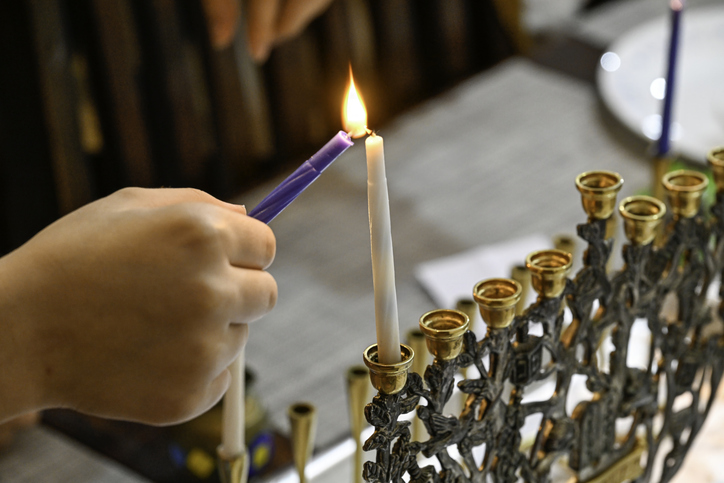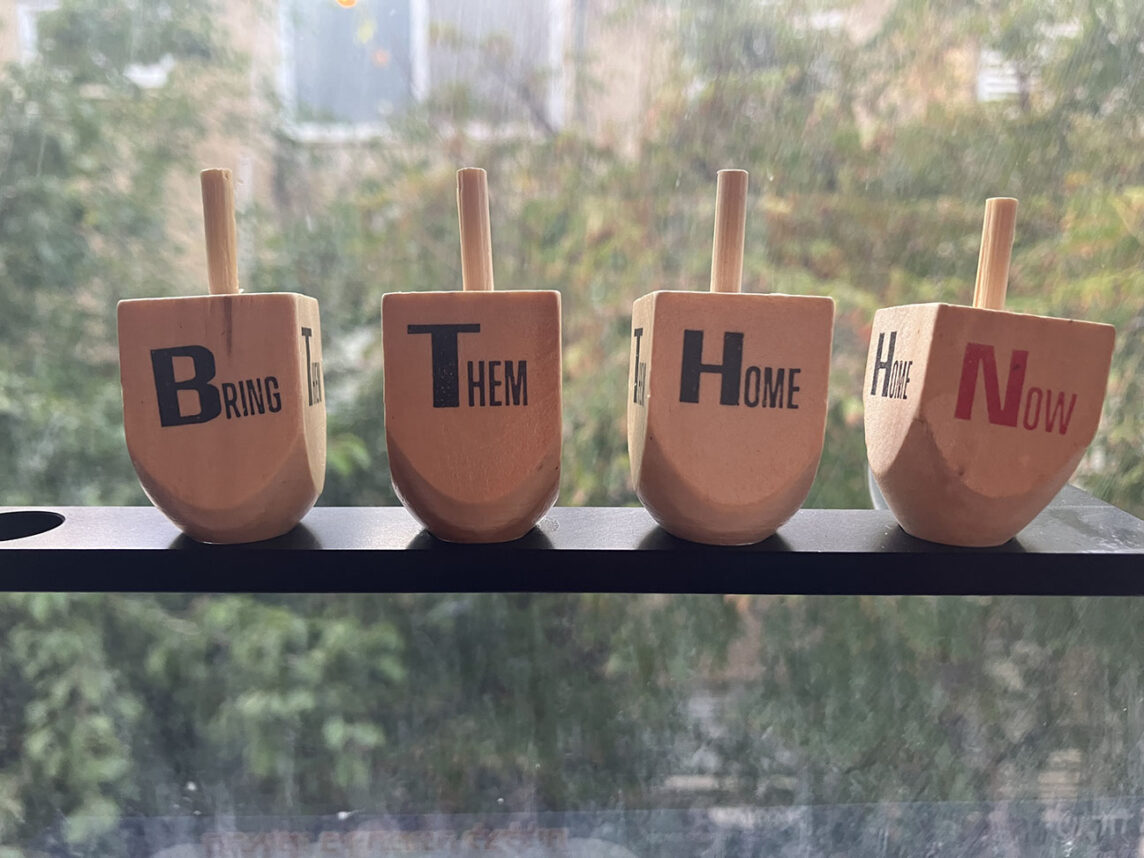
Kicking off the first month of our Hebrew calendar with Nisan’s new moon, we usher in a time of seasonal rebalance and realignment.
Amid a pandemic of untold anguish, grounding in ancestral wisdom and practice becomes more relevant than perhaps ever before. Passover seders at once become more accessible as we shift out of constriction and agitate toward collective liberation. Here’s a reminder: We come from a long line of survivors. Retelling how our people endured 10 plagues and escaped Pharaoh bespeaks that Jewish DNA holds the cellular memory of how to move through a plague.
As an urban homesteader, I turn to our agrarian tradition of stewardship to tap ancient wisdom from our seasonal harvests to see what teachings we can glean. While the practice of bringing sacrifices to the Temple ended after the destruction of the Second Temple, frontline medical, scientific, transportation, food and domestic workers, as well as the coronavirus victims and survivors offer a sacrifice on the communal behalf. We cannot obviate these sacrifices aor go back to what was, just as the Israelites couldn’t return to slavery (or slave-holding) after crossing the Sea of Reeds. Witness the astounding renewal of the planet’s depleted living systems. Fallowing the land is actually resuscitating the Earth’s lungs and breathing life into the toxic air, the brittle and over treated soil, and the plastic waterways that we have profited from while destroying. Climate science has us understand the urgency to institutionalize regenerative practices globally that are framed around sustainable rhythms. Tap into the regenerative currents of nature this spring as leaves unfurl and blossoms begin to fruit, and tap into an ancient architecture for resuscitating life force.
In such an epic yet crippling global moment, it’s tempting to narrow ourselves in despair and squander the most precious resource we have: our breath. This pause is new for a global culture enmeshed in a 24/7 cycle of production and consumption, yet it’s an ancient Jewish approach. The wisdom at work within each of us moves from constriction to liberation. As the Earth breathes, we, too, must exhale more fully so we can inhale more deeply and tap this prophetic time to dream up tomorrow’s world. Allow the breath to remind us that plagues, too, come and go.
During what mirrors a global sabbatical (shmita) year that fallows our systems in order to restore order and balance — we learn a way out of the typical daily marathon of linear over-productivity. The sabbatical reminds us to balance two powerful energies: growth and rest — each one feeding the other in a regenerative manner. By incorporating sacred and cyclical time into our routines, we structure time to breathe and reorient to core priorities. Knowing that every natural system, every institution and every one of our lives requires contemplative stillness to revivify, take time to recalibrate and place constraints around the management of time. Time to nourish after you extend, time to slow after you speed, time to reflect after you act — not just when the world stops, and not just reactively, but proactively. Consider drafting community agreements not to over-schedule, or using “Inbox When Ready” to safeguard your well-being.
The Exodus offers us a script for a monumental and irreversible mass exit across the globe right now from what was and toward what will be — from isolation as the Angel of Death moves through our neighborhoods — toward reunion and liberation.
While COVID-19 can attack lungs and constrict free movement within narrow air passages, fear, too, can interrupt the regularity of deep, cyclic breath. Getting through a single day requires a “radical release” of our plans and needs alike, along with a scaling-back on our habits of excess. This all syncs up this Nisan in prepping the ritual Pesach cleansing of chametz and eating unleavened bread. We cannot scale back when we are afraid. Fear and anxiety can land us in a paralyzing place that weakens the immune system, justifies hoarding and effectively bludgeons the spirit of generosity. The market shelves are empty yet the hills are alive with spring’s food and medicine. In keeping with the principles of shmita that stress hyper-locality and moderation, go outside, learn three local plants and forage sustainably to calm your nervous system. The fresh bitter herbs for our seder plates are literally carpeting the canyons after these abundant spring rains. Wild, nutritious mustard and dandelion greens, rosemary, mallow, horehound and nettles cleanse the liver and clear out stagnation in the blood. Sources suggest that white horehound was the original parsley for our seder plates, and taken as a tea it may help relieve swollen breathing passages and lung constriction. Harvest only what you can carry and share it to help others breathe.
The Exodus offers us a script for a monumental and irreversible mass exit across the globe right now from what was and toward what will be — from isolation as the Angel of Death moves through our neighborhoods — toward reunion and liberation. The high-minded questions encoded in the haggadah are an invitation to ground ourselves in this moment, to sit in inquiry around the complexities of narrowness. Our rabbis have always taught us to bless the tides of change. By reenacting the Israelites’ journey to freedom, may we find inner strength, build our immunity and breathe deeply as this plague passes-over and we resume our communal quest for freedom and justice that is sustainable for all.
Devorah Brous is an urban homesteader, an environmental educator and food justice community organizer. @fromsoil2soul, @devbees.




















